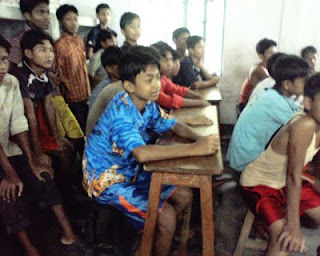The Marist Brothers arrived to Bangladesh 6 years ago. It
was a new country for us. It has been necessary to start everything from
scratch, including learning Bengali language, networking, meeting people, letting
us know, getting used to the climate, to the food, to the idiosyncrasy of the
wonderful people of this country, the most densely populated in the world.
During these first years we have been collaborating with
other institutions (in Pirgacha, Dinajpur, Srimongol and Mymensingh), learning
about the Bangladeshi educational system, studying the many possibilities and
proposals that have been offered to us.
In the range of possibilities to work, we have finally
chosen one: to provide education to the children of the workers in the tea
plantations.
Why this choice? The criteria were as follows:
- Choosing a particularly needy population group
- Going there where others could not or did not want to go
- The workers in the tea plantations in Bangladesh are
possibly the most disadvantaged social group in the country. The conditions in
which they live and work border on what we might call modern slavery; their
conditions are much tougher than those of employees of the textile workshops,
sadly famous after the incidents at Savar (Dhaka), Pope Francis did not
hesitate to describe it as slavery and has mobilized the sensitivity of much of
Western societies.
The project we want to carry out consists of a secondary
school for the children of tea plantations workers, and boarding house for boys
and girls.
.jpg)

